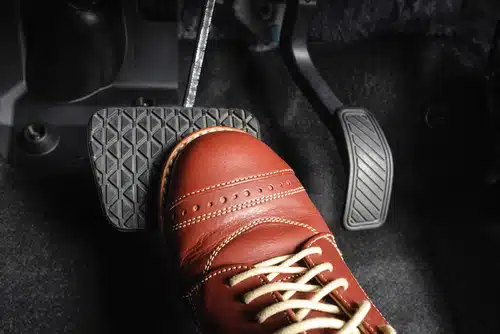Home » Blog » Pet » Pet Health & Safety » Everything You Need to Know About Your Puppy’s Deworming Schedule
Categories
Tags
animal welfare
breed profile
buying a car
buying a pet
Car
car accessories
car care
car features
car insurance
Car safety
car sales
car service
cat
cat behaviour
cat body language
Cat Breeds
cat food
cat insurance
comprehensive car insurance
Dog
Dog Behaviour
dog body language
Dog Breeds
dog food
Dog Insurance
dog training
eco friendly cars
Kitten
New Car
pet accessories
pet activities
Pet Adoption
pet breeders
pet days of the year
pet fun stuff
Pet Health
pet insurance
pet parenting
Pet Safety
pet services
Puppy
rescue pets
road safety
road trip
safe driving
Recent Blog:
Facebook Posts
2 days ago
Growing old sometimes means we can’t take care of pets anymore. Find out some advice on what to do when this happens:![]()
![]() Senior Pet Parents – Contingency Plans for Your Pet – bit.ly/44bzwkS
... See MoreSee Less
Senior Pet Parents – Contingency Plans for Your Pet – bit.ly/44bzwkS
... See MoreSee Less
Senior Pet Parents' Contingency Plans for Pets
www.pd.com.au
Sometimes senior pet parents need more downtime. For older pet owners, this can be tricky to navigate if their dog or cat is full of beans and wants to4 days ago
Before you rev up the engine, let’s run through a checklist of things to do before starting your car. Not only do these steps ensure your safety (and that of others around you), but they also help in maintaining your vehicle's longevity.![]()
![]() Driving Tips: Your Checklist Before Starting Your Car -
... See MoreSee Less
Driving Tips: Your Checklist Before Starting Your Car -
... See MoreSee Less
Driving Tips: Your Checklist Before Starting Your Car
www.pd.com.au
Heading out for a drive? Hold up a second! Whether you're dashing off to work, running errands, or embarking on a road trip adventure, there are a few1 week ago
Are intestinal worms setting up camp in your dog’s gut without paying rent? Here’s how to spot the main culprits and get rid of them too:![]()
![]() Preventing, Identifying and Treating Intestinal Worms in Dogs - bit.ly/43YjCKu
... See MoreSee Less
Preventing, Identifying and Treating Intestinal Worms in Dogs - bit.ly/43YjCKu
... See MoreSee Less
Preventing, Identifying and Treating Intestinal Worms in Dogs
www.pd.com.au
Intestinal worms, such as roundworms in dogs are one of the least glamorous topics on the planet. These intestinal parasites that basically use our dogsPuppy worming… not exactly a topic we like to think about. But if you’re a proud new puppy parent or considering becoming one, it’s crucial not to overlook this less glamorous aspects of pet ownership. Dog deworming is a vital aspect of responsible pet parenting and your pup will thank you for it.
In this blog post, we’ll explore why deworming your puppy is not just a routine chore but an essential step in ensuring their health and happiness.
In this article
- Why is it important to deworm your puppy?
- What are the different types of worms that can infect puppies?
- When should you start deworming your puppy?
- What are the different methods of puppy worming?
- What are the side effects of dog deworming?
- 10 tips to prevent your puppy from getting worms
- Insure your precious pup against all kinds of nasties

Why is it important to deworm your puppy?
Worms are parasites that can live in the intestines of puppies. Puppies are particularly susceptible to worm infestations for a number of reasons.
Firstly, puppies have weaker immune systems compared to adult dogs, making them more vulnerable to these types of nasties.
Secondly, they can get worms from their mum either before birth or through her milk, setting the stage for potential health issues right from the start. That’s why puppy deworming is part of their puppy healthcare milestones.
Worms can cause some nasty health problems, including:
- Weight loss
- Diarrhoea
- Your dog vomiting
- Constipation
- Lethargy
- Anaemia
- Dog skin conditions and problems
In severe cases, worms can even cause blindness or be fatal.
Some puppy worms can also spread to other animals and even humans. By deworming them, you help prevent the spread of these parasites, protecting not only your puppy but also your family and other pets.

What are the different types of worms that can infect puppies?
Don’t worry, we’re here to demystify the world of puppy worms for you. The most common types of worms in Australia that can infect puppies are:
Roundworm
These are the most common type of worm in puppies. They can grow up to 30cm long – yikes! Roundworms can be passed from mother to puppy through the placenta or in the mother’s milk.
Hookworm
These worms attach to the walls of the puppy’s intestines and suck their blood. Hookworms can cause anaemia and weight loss and is spread primarily through your puppy coming in contact with contaminated soil.
Whipworm
These worms live in the puppy’s large intestine and can also cause diarrhoea and weight loss. They’re spread primarily through your puppy eating their eggs – which can be found in the poop of infected animals and in soil. Luckily they’re not super common.
Tapeworm
Spread by fleas, tapeworms are long and flat. These nasties attach to the puppy’s intestines and absorb nutrients from their food. Tapeworms are made up of many segments, and each segment contains eggs. The segments can sometimes be seen in the puppy’s stool. Tapeworms can cause puppies to have a pot belly, diarrhoea, and weight loss.
Heartworm
Heartworm in puppies is a serious and potentially fatal condition caused by parasitic worms called Dirofilaria immitis. These worms are transmitted through the bites of infected mosquitoes and primarily target the heart and lungs of dogs.
In the early stages, infected puppies may show no symptoms. As the disease progresses, you might notice coughing, fatigue, reduced appetite, and weight loss. In severe cases, heartworms can cause heart failure and damage to other organs.

When should you start deworming your puppy?
When and how often your deworm your dog can vary depending on their age and risk factors. Typically, puppies are dewormed starting at two weeks of age and this continues at regular intervals until they reach adulthood.
A typical puppy worming schedule usually looks like this:
2 weeks
This first round of treatment helps to get rid of any worms they may have inherited from their mother.
Repeat every 2 weeks
For the next few months, your puppy will typically be dewormed every 2 weeks until they’re about 3 months old. This frequent deworming helps to target different life stages of worms.
3 to 6 months old
After the initial intensive deworming, your puppy may receive deworming treatments less frequently, usually around once a month until they’re about 6 months old.
6 months and beyond
Once your puppy reaches 6 months of age, your vet may recommend a more standard adult dog deworming schedule, which is typically every 3 to 6 months, depending on your location and your dog’s lifestyle.
Worming is part of their puppy healthcare milestones.
What are the different methods of puppy worming?
Typically, these are the ways you can deworm your dog:
Oral medication
This is the most common method, whereby medication is given to the puppy by mouth. Giving a dog a pill can sometimes be a little challenging. Here’s a helpful video below:
Topical medication
This is when medication is applied to the puppy’s skin – usually between the shoulder blades. It’s absorbed into the bloodstream and kills worms in the intestines. Topical medications are generally less effective than oral medications, but they may be a good option for puppies who are difficult to pill.
Injection
Injections are the most effective way to deworm a puppy, but they’re also the most invasive. Injections are typically administered by a vet due to the following reasons:
- Your puppy is too sick to take oral medications or apply topical medications.
- The puppy is vomiting or has diarrhoea, which prevents oral medications from being absorbed into the bloodstream.
- Your puppy has a severe case of worms or a type of worms that are resistant to oral medications.
- They’re allergic to oral or topical medications.
What are the side effects of dog deworming?
Most puppies don’t experience any side effects from a deworming. However, some puppies may experience mild side effects such as vomiting, diarrhoea, or lethargy.
These side effects are usually caused by the worms dying in the puppy’s intestines. They should go away within a day or two. If your puppy experiences any of these side effects, be sure to monitor them closely and contact your vet if you have any concerns.
In rare cases, puppies may experience more serious side effects from deworming medication, such as:
- Allergic reactions
- Seizures
- Neurological problems
If you notice any of these side effects in your puppy, contact your vet immediately.

10 tips to prevent your puppy from getting worms
No prevention method is 100% foolproof, but by following these steps and working closely with your vet you can greatly reduce the chances of your puppy getting worms.
#1 Keep it clean
Keep your puppy’s living area clean and tidy. Regularly remove poop from your yard or their playpen. Clean bedding and toys often to prevent contamination.
#2 Good toileting habits
Teach your puppy good potty habits. When you teach your puppy to eliminate waste in designated areas (like outdoors or in a specific spot indoors), you’re helping to prevent them from coming into contact with faeces from other animals, which can contain worm eggs. Find out more about toilet training your puppy – here.
#3 Be diligent with vet visits
Visit the vet for check-ups and vaccinations on time. They can recommend the best deworming schedule and give advice on prevention.
#4 Keep fleas at bay
Use flea and tick treatment for dogs that your vet recommends. As mentioned, fleas transmit some worms, so keeping them at bay helps prevent worms.
#5 Avoid raw meat
Avoid feeding your puppy raw meat or putting them on a raw food diet. Raw meat can carry parasites, so it’s likely best to stick to a high-quality puppy food instead.
#6 Hand hygiene
Always wash your hands after handling your puppy and before eating. This reduces the risk of transferring any potential worm eggs.
#7 Poop scoot
Puppies are curious, but discourage them from eating poop, whether it’s theirs or another animal’s. Poop can carry worm eggs.

#8 Follow the schedule
Follow your vet’s recommended deworming schedule. Prevention is key, and regular deworming helps keep worms at bay.
#9 Limit infection
If you encounter stray or unknown dogs, try to limit your puppy’s contact. Stray dogs can carry worms, and puppies are more susceptible.
#10 Socialise wisely
When socialising your puppy with other dogs, choose clean and well-cared-for playmates. This reduces the risk of exposure to worms.
By deworming your puppy regularly, you’re helping to ensure they have a healthy start in life that will continue. So, don’t forget to add “deworming” to your list of puppy care essentials and you’ll be well on your way to raising a happy and healthy canine companion.
Insure your precious pup against all kinds of nasties
Dog deworming is an essential part of being a responsible pet parent. We say dog insurance is too. You never want to be weighing up money with getting your pup the best treatment in the case of an accident or illness.
PD Insurance offers value-rich, month to month cover wherever you are in Australia, whichever qualified vet you choose. We’ll take the stress away by enabling you to make fast, care-based health decisions and paying your claim quickly.
Don’t let this chance worm away— click below to get one or more months of FREE pet insurance (and potentially a multi-pet discount if you insure more)!
Share On:




